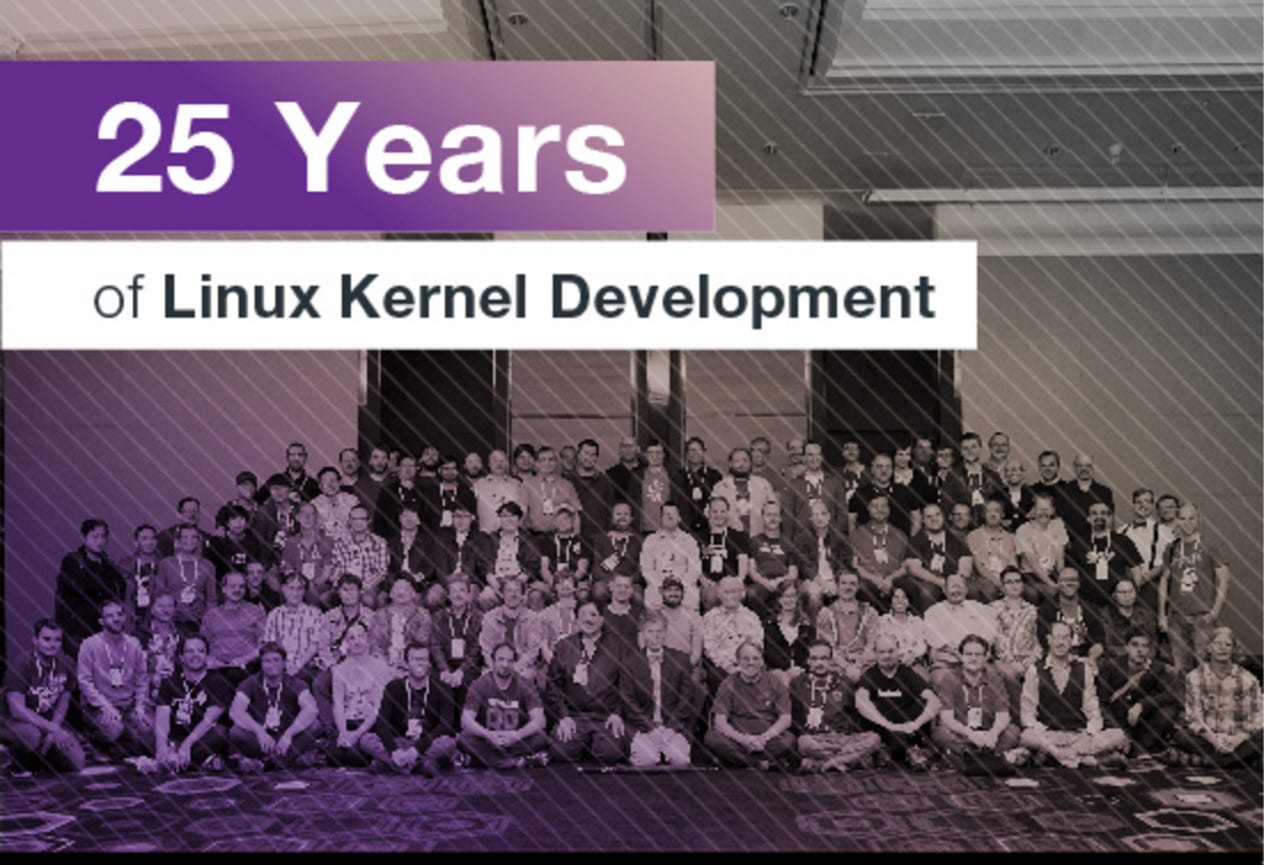Linux rules the world. Where to next?

TORONTO -- At LinuxCon, Jim Zemlin, the Linux Foundation's executive director, said "Linux has gone far beyond what anyone could have expected" and that it's been the "most successful software project in history." He's right.

The main Linux kernel developers are the most influential programmers in the world. (The Linux Foundation)
From Android phones to supercomputers to clouds to car, it's all Linux all the time. Linux is the poster child for the open-source revolution.
The latest Linux kernel report, Linux kernel development - How fast it is going, who is doing it, what they are doing, and who is sponsoring it, details just how quickly Linux changes. In the last 15 months, more than 3 million lines of code have been added to the Linux kernel. For those of you coding at home, that's 7.8 changes per hour.
Since the 3.18 release on December 7, 2014, just under 115,000 changesets have been merged from 5,062 individual developers representing nearly 500 corporations. The top developers work for, in this order, Intel, Red Hat, Linaro, Samsung, and SUSE. Thousands of developers still work on Linux independently of large corporations.
That said, well over 80 percent of all kernel development is done by developers who are being paid for their work. The ranks of unpaid developers have been slowly shrinking for years. It was 14.6 percent in the 2012 version of this paper, 13.6 percent in 2013, and 11.8 percent in 2014; over the period covered by this report, it has fallen to 7.7 percent. The number has been declining because kernel developers are in short supply and high demand. Anybody who demonstrates an ability to get code into the mainline Linux kernel won't have any trouble finding a job.
In the last year and a half, there have been many significant Linux improvements. These include:
- Live patching support.
- Persistent-memory device support.
- Encrypted storage for the ext4 filesystem.
- Adoption of the extended Berkeley packet filter (BPF) engine for in-kernel extensibility security-module.
- Numerous networking enhancements with a focus on IPv6 and datacenter improvements.
Linux developers have also turned their attention to improving Linux's security. Support has been added for numerous hardware-based security features. These include Intel's memory protection extensions and memory protection keys, and ARM's privileged execute-never mechanism.
The kernel itself has been hardened to prevent attackers from taking over the system even when a security hole is present. This largely consists of integrating work the longstanding grsecurity project.
Looking at the bigger picture, how did Linux become the model, not just for open-source software development, but for all software development? Zemling suggests that the moral of the Linux story is, "You can better yourself while bettering others at the same time."
"Sharing is hard work," Zemlin added, but it's good work in every meaning of the word, "good".
Zemlin continued,"Sharing while making yourself and others better is a higher purpose, and it matters. That is the magic of Linux and open source, and that's what the Linux movement has achieved over 25 years."
Featured
That first generation of Linux was all about emulating proprietary software and making it more affordable and accessible. Things have changed. "Today," he added, "Linux is not about emulating the past; it's about defining the future."
It already is. Revolutionary companies such as Airbnb and Uber, which turned the hotel and taxi businesses upside down, run on Linux and open-source software.
The Linux revolution is far from done. Science evangelist Ainissa G. Ramirez came on stage after Zemlin to speak about how technology shapes humanity. For example, she observed, "Technology is a faster mover than legislation. If you don't think so, just think of all the people who have different lives today with Pokémon Go, which didn't exist four weeks ago."
Humor aside, Ramirez pointed out that we don't know what changes technology will bring. For example, the modern football helmet led to the rise of concussions. Why? Because now people would tackle with their heads. Yes, a safety measure actually ended up making the game more dangerous.
So, as developers work on the next 25 years of Linux, Ramirez encourages them to realize that their work can have far more of an effect on the world than they realize. Therefore, they should make technology that aspires to create a better world. She concluded, "I know what I'm asking might not be easy, but changing the world never is."
Linux already has changed the world -- the one thing we know for certain is that it will continue to do so. Therefore, it behooves programmers to try to improve not just their code, but the world.
Related Stories: